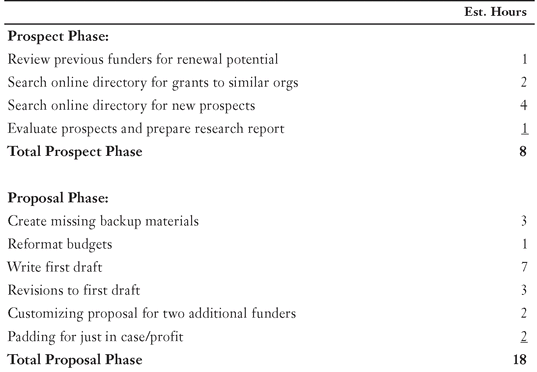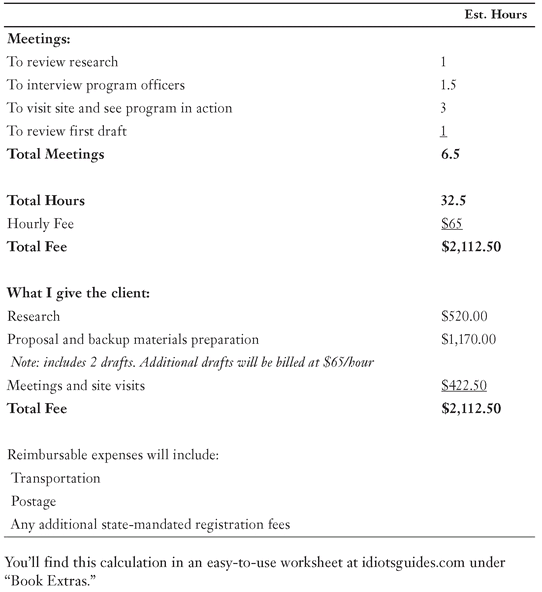Good Contracts Make for Good Clients
Just as “good fences make good neighbors,” a good contract establishes boundaries, helps you maintain a professional relationship, and articulates reasonable expectations for your work for the client. You may prefer to create a simple letter of understanding that states what you will do and for how much, rather than getting into the “whys” and “therefores” of a legalese contract.
Your contracts or agreements should include the following:
• Your fee for the project and the basis for that fee. Are you working for a flat fee? What’s included in that fee (for example, research results, two drafts of the proposal, creation of a budget, etc.)? What else will the client need? If you’re working for an hourly rate, what’s that rate and what’s your estimate of the hours you’ll need to complete the project?
• What you will do for the fee. How many proposals will you complete? How many will be sent out?
• What the client will provide, including documents and access to those who are running programs.
• A schedule of payments or what action on your part requires a payment. For example, you should request partial payment in advance to start work. The second payment might be due when you’ve presented the first draft. Be sure to be clear about when full payment is due to you, which usually will be when you present the completed proposal—not when they hear if they received the grant.
• An end date, even if the contract is for ongoing work for the client rather than a specific project. That gives you an easy way to renegotiate the terms if needed or to end the relationship gracefully. (And some states require a start and end date in every contract.)
• What expenses must be reimbursed, such as photocopying, postage, and transportation.
• Any conditions required by the charity bureau in your state. You’ll find these with the registration information on the attorney general’s site for your state.
• A disclaimer that you make no guarantees about what funds your client may gain from the proposals you prepare.
You can find sample service contracts on the Internet you can adapt for your use. There’s a good one at raise-funds.com. Although that sample is for an annual fund campaign, you might use it as a model. If you have a lawyer friend who can review your first contract before presenting it to the client, you may save yourself time, money, and grief later on.
The following table illustrates how I calculate a fixed fee based on the number of hours I estimate it will take. Note that the client needs to see only the condensed table at the bottom.
My Fee Worksheet


..................Content has been hidden....................
You can't read the all page of ebook, please click here login for view all page.
